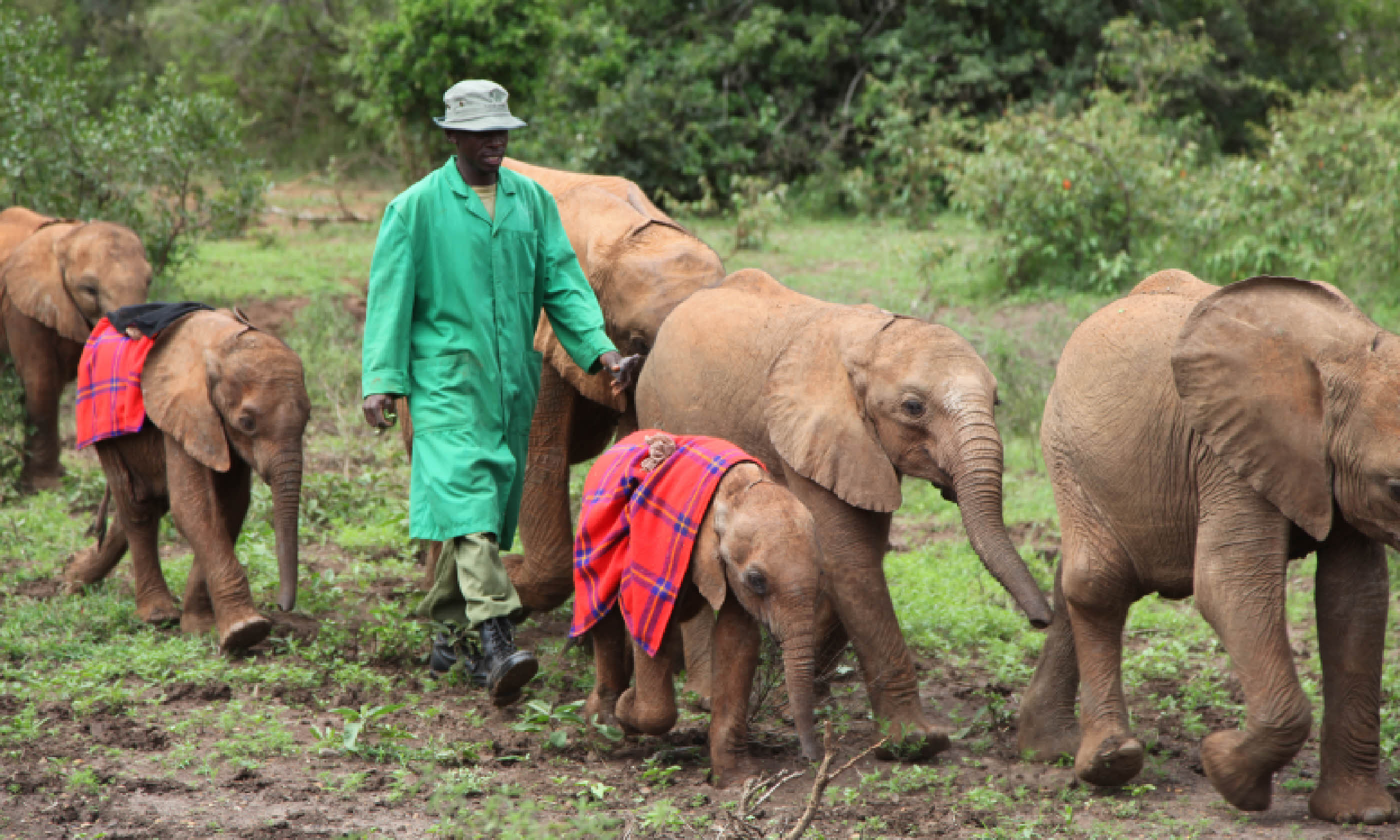
How to rescue an orphaned elephant
Benjamin Kyalo has dedicated his life to the rescue of Kenya's orphaned elephants. Here, he shares tales from the front line of conservation...
Meet Benjamin Kyalo, a project manager at Kenya's David Sheldrick Trust. But he's no average project manager: he heads up the organisation's Ithumba Orphans Unit, and has spent the past 15 years reintroducing orphaned elephants into the wild. If only all project manager jobs were like that...
On a rare trip to the UK, Benjamin – 34 years old, of the Kamba tribe – chatted to Wanderlust
about life in the Trust, and his favourite elephant characters...
What originally inspired you to work for the Trust?
One day I visited the baby elephant’s orphanage in Nairobi. I had heard the stories about their plights and I was interested in knowing more. I left a message with the keepers that if any opportunities arose, they should contact me. Three months later, one the keepers got in touch. I came for interview that was done by the baby orphans: I passed the test and here I am today, 15 years later.
Day to day, what are your responsibilities?
I wake up at 5am every day, an early start, to wander the bush with the orphans. During the day, we accompany the elephants as they browse, meet other wild elephants and – for those still milk-dependent – have their morning feed and mud bath. They will eventually return to the stockades at around 6pm.
My responsibilities are round-the-clock, and long-term: I receive the young babies from the Nairobi Nursery and see them through up to when they become wild again. I make sure that they get their milk and greens at the right time, and are given the required love by the Keepers. I spend time with them, reporting any sickness or unusual behaviour to our Nairobi Headquarters. They tell us which kind of medicine or injection to give when the elephants are unwell. Occasionally, we might come across an orphaned elephant whilst out in the bush, so we might be involved in their rescue.
Do you see 'personalities' in the elephants?
Each elephant is different, and some elephants can be mischievous, or calm like Bongo, who is always enjoying a mud bath. Personalities are there, like Naserian and Loijuk (now wild) that are so intelligent, to the extent of opening the gate of the stockade when the Keepers are not watching! Sunyei, an orphan that went wild, was so cunning; whenever she wanted to feed at the fenced Kenya Wildlife Service camp nearby, she knew how to go down on her knees on to cross the electrified fence, then return in the same way after feeding.
Even with the international awareness of Kenya's elephants, is the risk from poachers still strong? What can be done to lower this risk?
The risk from poaching is still strong: an elephant is killed for its ivory every 15 minutes. These might be old wide matriarchs, elephants with calves, or even just calves – poachers do not discriminate. When elephants are killed, there is so much damage – to the environment, to herds, and to tourism.
The best way to lower the risk is by educating everyone about the importance or benefits derived from conserving elephants, and completely cutting off the market for ivory. Demand for ivory drives poaching, so we must educate people in Kenya about the importance of their elephants. At Ithumba, we arrange visits for school children to see the orphans and their wildlife – many haven’t seen a wild elephant before and they then take home their knowledge.
I'm sure you experience many rewarding moments in your job – are there any that stick out for you in particular?
Having hand-raised over 27 orphans, each is imprinted on my heart. Most especially, whenever an orphan that has passed through my hands joins the wild and comes with a baby of its own or brings wild herds to the stockade, I feel content. Each visit by Yatta and Mulika who bring back their wild born babies to see us is rewarding.
Have there been any moments that you found particularly hard, or sad?
When an orphan falls sick and dies due to a condition that we unable to treat, it is always devastating. Young babies are very fragile: if they give up on life there is little we can do. It is always sad to see an elephant die, be it young or old.
What advice would you have for anybody wanting to start a career in conservation?
One must have a love for all wildlife and a passion that has to come deep within your heart. Working with elephants, they can read your heart and tell if you are sincere or not. It takes hard work to gain their love and trust.
Of course your job has benefited and enriched the lives of the animals you work with - but has it enriched your own life too?
it gives me deep satisfaction. From learning about elephants to gaining a surrogate family, it has enriched my life enormously.
